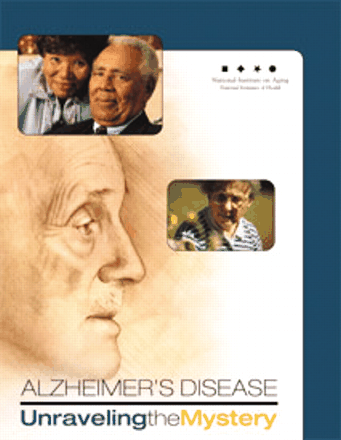Sites of interest on the World Wide Web—edited by David Siderovski
One Drug Doesn’t Fit All
In MI’s interview this month (pages 118–122), Dr. Richard Weinshilboum of the Mayo Clinic, this year’s recipient of the Harry Gold Award in Clinical Pharmacology, discusses the history and future of pharmacogenetics, the study of how our genes affect our individual responses to medicines. Several excellent sites have sprung up on the Web to help organize and coordinate Internet-based resources for pharmacogenomics, including those sponsored by the Pharmaceutical Research and Manufacturers of America (http://genomics.phrma.org/pharmacogenomics.html) and the National Institute of General Medical Sciences (http://www.nigms.nih.gov/pharmacogenetics). The latter agency, along with other Institutes of the NIH, funds the Pharmacogenetics Knowledge Base (http://www.PharmGKB.org), part of the Pharmacogenetics Research Network (PGRN). Housed at Stanford University, PharmGKB intends to be the central repository for genetic and clinical information about individuals who have participated in clinical trials. PharmGKB also solicits information from scientists for its growing database of gene–drug, gene– disease, and gene–drug–disease associations. Additionally, the site provides links to complementary Web pages such as a Cytochrome P450 Drug Interaction table (http://medicine.iupui.edu/flockhart) and GeneSNPs (http://www.genome.utah.edu/genesnps), a Web resourse, similar to PharmGKB, that integrates sequence polymorphism data related to gene–environmental response associations.

Cognition Restoration
Also in this issue of MI , Mufson and colleagues consider the role of the neuropeptide galanin in the pathophysiology underlying the neurodegeneration and cognitive impairment typical of Alzheimer’s disease (AD; 137–156). Several NIH-sponsored sites act as portals, for the researcher and layperson alike, that lead to information about AD, including those of the National Institute on Aging (http://www.alzheimers.org), the National Institute of Neurological Disorders and Stroke (http://www.ninds.nih.gov/health_and_medical/disorders/alzheimersdisease_doc.htm), and the National Library of Medicine (http://www.nlm.nih.gov/medlineplus/alzheimersdisease.html). Three FDA-approved acetylcholinesterase inhibitors (http://www.alz.org/ResourceCenter/ByTopic/cholinesteraseinhibitors.htm) are in general use for improving the memory and thinking abilities of AD patients: donepezil/Aricept®, rivastigmine/Exelon®, and galantamine/Reminyl®. However, many alternative therapies and herbal remedies, including ginkgo biloba extracts, phosphatidylserine, and the moss extract huperzine A, have also be promoted as treatments for AD. The Alzheimer’s Association (http://www.alz.org/AboutAD/Treatment/Alternative.htm) is careful to spell out the concerns regarding these alternative treatments, as dietary supplements are regulated by the FDA’s Center for Food Safety and Applied Nutrition (http://www.cfsan.fda.gov/~dms/supplmnt.html) under guidelines that are very different from those covering prescription and over-the-counter drugs.
- © American Society for Pharmacology and Experimental Theraputics 2003





